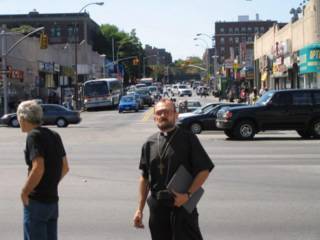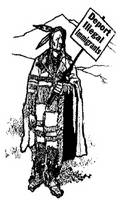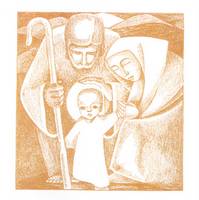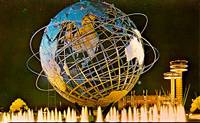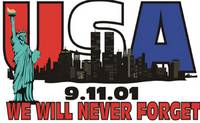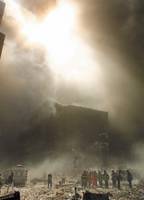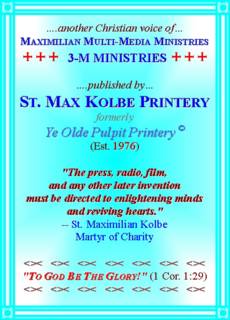Pope Benedict XVI drops a Traditional Papal Title and opens a possible "tempest in a teapot"!
 His Holiness Pope Benedict XVI has just renounced one of the traditional titles of the Roman Pontiff by dropping His Latin-Rite title "Patriarch of the West."
His Holiness Pope Benedict XVI has just renounced one of the traditional titles of the Roman Pontiff by dropping His Latin-Rite title "Patriarch of the West."The Roman Catholic press now reports that the new 2006 edition of the Annuario Pontificio, the official Vatican yearbook, carries eight other traditional titles for the Pope, but does not include the "Patriarch of the West" designation that appeared in previous editions.
The first ceremonial copy of the Annuario was presented to Pope Benedict on 18 February 2006. The 2006 edition, which will on sale to the public by March 10 is the first edition printed since Pope Benedict's April 19th election.
In previous editions of the Annuario, the title "Patriarch of the West" had been listed after "Supreme Pontiff of The Universal Church. The last time the list of titles was changed was with Pope Paul VI's publication of the 1969 edition of the yearbook, the Annuario Pontificio. (Pope Paul VI then added the title "servant of the servants of God" and deleted the phrase "gloriously reigning.")
The Pope is now identified in the Annuario as: "Bishop of Rome, Vicar of Jesus Christ, Successor of the Prince of the Apostles, Supreme Pontiff of the Universal Church, Primate of Italy, Archbishop and Metropolitan of the Roman Province, Sovereign of the State of the Vatican City, Servant of the Servants of God."
Pope Benedict, who reportedly made the decision himself to drop the traditional title, evidently wished to eliminate any notion that the Holy See represents the Church of "the West," and is therefore separate from the Eastern tradition.
The designation "Patriarch of the West," * which traditionally appeared in that list of titles just before "Primate of Italy," has rarely been employed since the Great Schism of 1054, which separated the Orthodox churches from the Holy See. *
It was introduced into papal nomenclature in 1870, at the time of the First Vatican Council. Pope Benedict chose to remove the *title* at a time when discussions with the Orthodox churches have centered on the issue of papal primacy.
Cardinal Achille Silvestrini, retired prefect of the Congregation for Eastern Churches, told the Italian news agency ANSA that the deletion was a "sign of ecumenical sensitivity" on the part of Pope Benedict. The Cardinal explained that The Holy Father wishes to emphasize the service that the Bishop of Rome performs for the entire Christian community, as the focus of unity in the Universal Church.
His Eminence also said that in the past some people used the title to provoke negative comparisons between the claims of universal jurisdiction by the worldwide "Patriarchate of the West" and the more restricted size and jurisdiction of the traditional Orthodox patriarchates.
Other Church experts, however, warned that the deletion could provoke concern if it is seen as the Vatican saying (but not meaning) that "patriarchal authority is meaningless" when, in fact, the Pope has universal authority over ALL The Church.
Rev. Msgr. Michael K. Magee, a priest of the Archdiocese of Philadelphia who presented his doctoral thesis on "The Patriarchal Institution in the Catholic Church" Feb. 20 at Rome's Pontifical Gregorian University, said "patriarch" was first used to refer to Church leaders by the Byzantine emperors in the fifth century. The popes and the Vatican did not use the title at least until the eighth century, he explained.
In the same way that the Pope, as Archbishop of Rome, shares some of the characteristics of other bishops, Msgr. Magee said, the Pope as Patriarch of the West -- or, more specifically, of the Latin-rite Church -- shares certain characteristics of the Eastern patriarchs, whose direct jurisdiction extends beyond just one diocese to include a ritual family. Presenting his dissertation, Msgr. Magee said that already in the 1960s the former Father Joseph Ratzinger, now Pope Benedict, had identified a need to draw a distinction between the Pope's roles as Pastor of the Universal Church and as Patriarch of the Latin-Rite Catholic Church.
After the split of the churches of the East and West, Msgr. Magee said, in the West "an understanding of ecclesial authority cast increasingly in juridical rather than sacramental terms seemed to render the patriarchal role comprehensible only as a delegation or emanation from papal authority."
The Philadelphia priest said Franciscan Father Adriano Garuti, a former official at the Congregation for the Doctrine of the Faith and a professor at the Pontifical Lateran University, had written that if the Pope is referred to as one of the Christian patriarchs it downplays his universal authority.
Msgr. Magee argued, however, that in addition to his universal ministry the Pope is head of a "particular church" -- the Latin-rite Catholic Church -- distinguished by its own liturgy and discipline. Maintaining a distinction between the Pope's role as head of the Universal Church and as a patriarch, Msgr. Magee said, could be seen as protecting and opening up "the rightful place of other particular churches within Catholicity."
* In actuality, it is the righteous title of "Supreme Pontiff and Vicar of Christ" which the Eastern Orthodox takes issue with. I doubt if this politically correct feint will do much to placate the Orthodox. As for myself, I will simply call His All Holiness, Pope Benedict XVI, "PETER". --- Fr. Steve +








